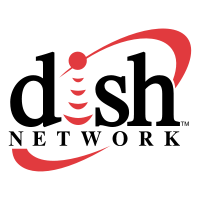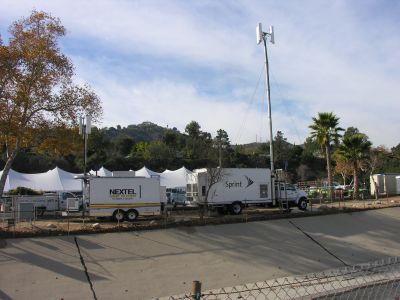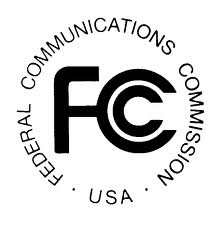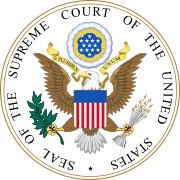Now it gets interesting.
 As I previously reported, (Soft)Sprint is trying to buy up the shares of Clearwire not already owned by Sprint. They offered $2.97 per share.
As I previously reported, (Soft)Sprint is trying to buy up the shares of Clearwire not already owned by Sprint. They offered $2.97 per share.
Enter, now, Dish Network with an unsolicited offer to purchase Clearwire at $3.30 per share.
Needless to say, Sprint’s not too impressed with the Dish offer.
Now it’s up to Clearwire’s “Special Committee” to evaluate the offers (and any other interlopers who happen along) to pick the winner.
Here’s Clearwire’s press release from a couple of hours ago:
Clearwire Corporation Provides
Transaction Update
BELLEVUE, Wash., Jan. 8, 2013 (GLOBE NEWSWIRE) — Clearwire (Nasdaq:CLWR) today announced that it has received an unsolicited, non-binding proposal (the “DISH Proposal”) from DISH Network Corporation (“DISH”). The DISH Proposal, as further summarized below, provides for DISH to purchase certain spectrum assets from Clearwire, enter into a commercial agreement with Clearwire, acquire up to all of Clearwire’s common stock for $3.30 per share (subject to minimum ownership of at least 25% and granting of certain governance rights) and provide Clearwire with financing on specified terms.
The DISH Proposal is only a preliminary indication of interest and is subject to numerous, material uncertainties and conditions, including the negotiation of multiple contractual arrangements being requested by DISH (some of which, as currently proposed, may not be permitted under the terms of Clearwire’s current legal and contractual obligations). It is also subject to regulatory approval.
As previously announced on December 17, 2012, Clearwire has entered into a definitive agreement with Sprint Nextel Corporation (“Sprint”) for Sprint to acquire the approximately 50 percent stake in Clearwire it does not already own for $2.97 per share (the “Sprint Agreement”). Clearwire’s ability to enter into strategic transactions is significantly limited by its current contractual arrangements, including the Sprint Agreement and its existing Equityholders’ Agreement.
The Special Committee of the Clearwire Board of Directors (the “Special Committee”) has determined that its fiduciary duties require it to engage with DISH to discuss, negotiate and/or provide information in connection with the DISH Proposal. The Special Committee has not made any determination to change its recommendation of the current Sprint transaction. Consistent with its obligations under the Sprint Agreement, Clearwire has provided Sprint with notice, and the material terms, of the DISH Proposal, and received a response from Sprint that is described below.
DISH had, prior to the announcement of the Sprint Agreement, provided Clearwire with a preliminary indication of interest solely with respect to acquiring certain of Clearwire’s spectrum assets, on substantially the same pricing per MHz-POP as the spectrum purchase included in the DISH Proposal described below, and entering into a commercial agreement. Although Clearwire worked with DISH prior to the execution of the Sprint Agreement to improve the overall terms of that proposal, the Special Committee of the Clearwire Board determined that the Sprint transaction was, for a number of reasons, a more-attractive alternative for Clearwire’s non-Sprint Class A stockholders than a transaction with DISH at that time and on the terms then-proposed by DISH.
Summary of DISH Proposal
The following is a summary of the material terms of the proposal:
- Spectrum Purchase. DISH would acquire from Clearwire spectrum covering approximately 11.4 billion MHz-POPs (“Spectrum Assets”), representing approximately 24% of Clearwire’s total MHz pops of spectrum, for aggregate net cash proceeds to Clearwire of approximately $2.2 billion (the “Spectrum Purchase Price”). The net cash proceeds are prior to any adjustment for potential tax liabilities which are likely to arise from the sale of spectrum assets even after utilizing the existing net operating losses. At DISH’s option, Clearwire would also sell or lease up to an additional 2 MHz of Clearwire’s spectrum to DISH from a channel that is adjacent to the Spectrum Assets at a price to be calculated in the same manner as the Spectrum Assets.
- Commercial Agreement. Clearwire would, at DISH’s request, provide certain commercial services to DISH, including the construction, operation, maintenance, and management of a wireless network covering AWS-4 spectrum and new deployments of 2.5 GHz spectrum.
- Acquisition of Clearwire Shares; Governance. DISH would make an offer to Clearwire’s stockholders to purchase up to all of Clearwire’s outstanding shares at a price of $3.30 per share in cash. This tender offer would not be dependent on Sprint’s participation, but would be subject to a number of conditions, including DISH: (i) acquiring no less than 25% of the fully-diluted shares of Clearwire, (ii) being granted the right to designate Clearwire board members commensurate with its pro forma ownership percentage, (iii) receiving certain minority protections, including the right to approve material changes to Clearwire’s organizational documents, change of control and material transactions with related parties (unless these transactions were approved by an independent committee of the Clearwire board and, if over a certain threshold, supported by a written fairness opinion from a nationally recognized investment bank) and (iv) receiving preemptive rights. In addition, the DISH Proposal would require Clearwire to terminate the note purchase agreement under which Sprint has agreed to provide interim financing to Clearwire and is conditional upon the consummation of the spectrum purchase and Clearwire being in compliance with the commercial agreement (both as described above).
- Spectrum Purchase Price Funding. DISH would pre-fund the Spectrum Purchase Price within three business days of signing through a senior Unsecured PIK Debenture (the “PIK Debenture”) bearing PIK interest at a rate of 6% per annum in the event the Spectrum Assets are sold to DISH or 12% per annum otherwise. Clearwire would be obligated to either apply the proceeds of the pre-funding to reduce outstanding long-term debt through the redemption or repurchase of the 2015 Senior Secured Notes and 2016 Senior Secured Notes of Clearwire Communications LLC or, in the event that a portion of the Network Build Financing described below is unavailable due to the failure to receive shareholder approval, to use an equivalent portion of the proceeds of the PIK Debenture to fund network build-out costs; in that case, any future make up draws on the Network Build Financing following shareholder approval would be applied to reduce debt as provided in this sentence. If Spectrum Assets are not acquired due to a failure to obtain required regulatory approvals, Clearwire would, within 30 days following termination of the spectrum purchase agreement, repay the PIK Debenture plus interest at 6% per annum. If Clearwire is unable to repay the PIK Debenture during this 30 day period, it would be entitled to convert the principal amount and accrued interest on the PIK Debenture into a note on terms comparable to the 2015 Senior Secured Notes previously repaid, having a maturity of December 1, 2015.
- Network Build Financing. DISH proposes to provide additional capital to fund a portion of Clearwire’s network build-out through a credit facility for the purchase of exchangeable notes on substantially similar terms to those which Sprint has agreed to provide, subject to cancellation of the Sprint Financing Agreements (as described below).
- Deal Protections. DISH expects appropriate deal protections, including a 5-day match right, similar to those included in the Sprint Agreement. DISH would match Clearwire’s termination rights as provided for in the Sprint transaction (including the possible forgiveness of a portion of the exchangeable notes upon certain termination events).
- Sprint Financing. DISH has indicated that the proposal will be withdrawn if Clearwire draws on the financing under the Sprint Financing Agreements.
In connection with the Sprint Agreement, Clearwire and Sprint also entered into agreements that provide up to $800 million of additional financing to Clearwire in the form of exchangeable notes, which will be exchangeable under certain conditions for Clearwire common stock at $1.50 per share, subject to adjustment under certain conditions (the “Sprint Financing Agreements”). Under the Sprint Financing Agreements, Sprint has agreed to purchase, at Clearwire’s option, $80 million of exchangeable notes per month for up to 10 months beginning on January 2, 2013. The DISH Proposal indicates that it will be withdrawn if Clearwire draws on the financing under the Sprint Financing Agreements. As a result, in order to allow the Special Committee to evaluate the DISH Proposal, at the direction of the Special Committee, Clearwire has revoked its initial draw notice and has not received the first $80 million under the Sprint Financing Agreements. The Special Committee has not made any determination with respect to any future draws under the Sprint Financing Agreements.
Summary of Sprint Response to DISH Proposal
In response to the DISH Proposal, Clearwire has received a letter from Sprint stating, among other things, that Sprint has reviewed the DISH Proposal and believes that it is illusory, inferior to the Sprint transaction and not viable because it cannot be implemented in light of Clearwire’s current legal and contractual obligations. Sprint has stated that the Sprint Agreement would prohibit Clearwire from entering into agreements for much of the DISH Proposal. The following is a summary of Sprint’s statements in its letter regarding the material terms of the DISH Proposal:
- Spectrum Purchase. Sprint has stated that, under the Sprint Agreement, Clearwire is prohibited from selling the Spectrum Assets without Sprint’s consent. In addition, Sprint has stated that Clearwire is further subject to various requirements under its commercial agreements with Sprint and the Equityholders’ Agreement applicable to selling Spectrum Assets, even if the Merger Agreement were not in place.
- Commercial Agreement. Sprint has stated that, under the Merger Agreement, Clearwire is prohibited from entering into the commercial agreement proposed by DISH so long as the Merger Agreement is in place.
- Acquisition of Clearwire Shares. Sprint has stated that the DISH Proposal may constitute a change of control under the Equityholders’ Agreement, which would require the affirmative vote of 75% of the issued and outstanding shares of Clearwire’s stock. Sprint has stated it would not vote in favor of the proposed transaction with DISH.
- Governance. Sprint has stated that (i) it would be impermissible under Clearwire’s current Equityholders’ Agreement for Clearwire to agree to nominate DISH’s designees to the Clearwire Board, (ii) it would be impermissible under the Equityholders’ Agreement for Clearwire to create a new independent committee of the Clearwire Board and (iii) under Delaware law, certain governance rights requested by DISH (including the request for proportionate board representation) cannot be granted by Clearwire in a manner that does not require amendment of the certificate of incorporation or consent of Sprint to a shareholder agreement embodying what DISH has requested.
- Funding. Among other arguments, Sprint has stated that the complex financing provisions of the DISH Proposal must also be considered in light of the existing Clearwire contractual arrangements (including debt arrangements) and that it is not clear from Sprint’s review that such financing is permitted by or would comply with Clearwire’s existing arrangements. In addition, Sprint has stated that Sprint and the other parties to the Equityholders’ Agreement would have preemptive rights with respect to any issuance of exchangeable notes by Clearwire as contemplated by the DISH Proposal, and any issuance of such notes may also require Clearwire stockholder approval in accordance with the NASDAQ listing requirements.
- Sprint Financing. Sprint has stated that it is concerned with Clearwire’s failure to consummate the January 2 tranche of funding under the Sprint Financing Agreements, that it does not believe Clearwire’s initial draw notice was revocable and that it has reserved its rights relating thereto.
Process
The Special Committee will, consistent with its fiduciary duties and in consultation with its independent financial and legal advisors, continue to evaluate the DISH Proposal and the letter from Sprint and discuss them with each of DISH and Sprint, as appropriate. The Special Committee and Clearwire will pursue the course of action that is in the best interests of Clearwire’s non-Sprint Class A stockholders. Neither Clearwire nor the Special Committee has any further comment on this matter at this time.
Evercore Partners is acting as financial advisor and Kirkland & Ellis LLP is acting as counsel to Clearwire. Centerview Partners is acting as financial advisor and Simpson Thacher & Bartlett LLP and Richards, Layton & Finger, P.A. are acting as counsel to Clearwire’s special committee.
<balance snipped>
Okay, now let’s see who’s got the bigger set of dishes!
jlk









